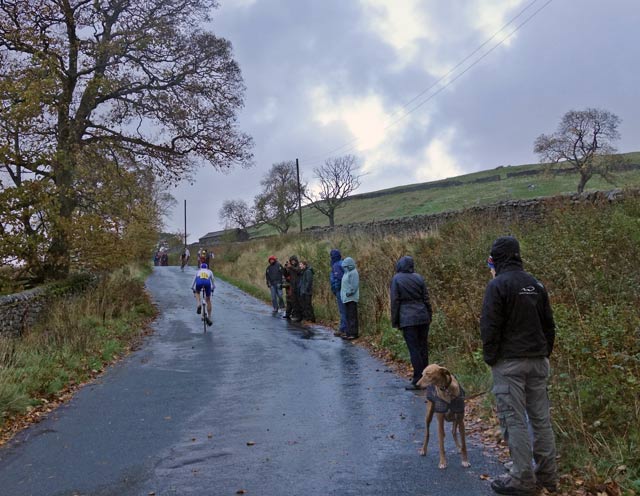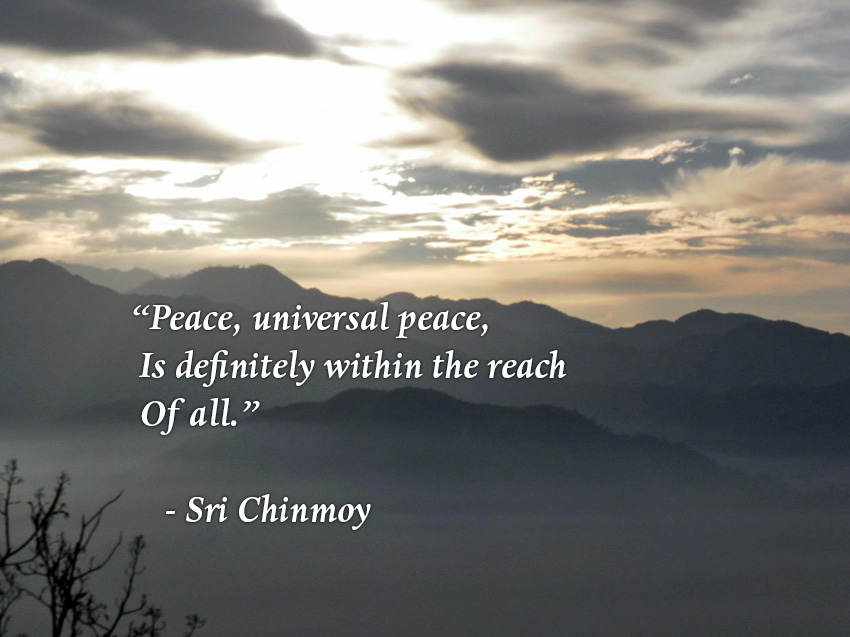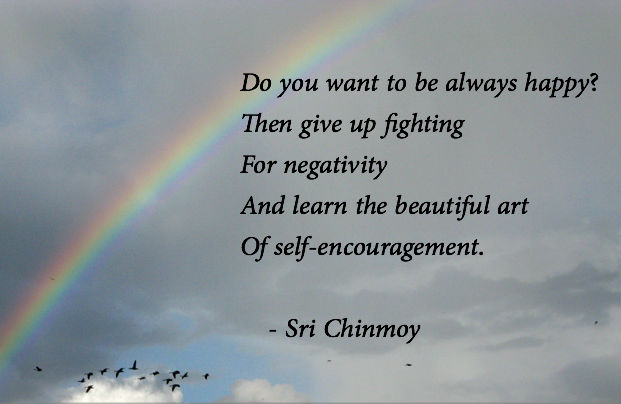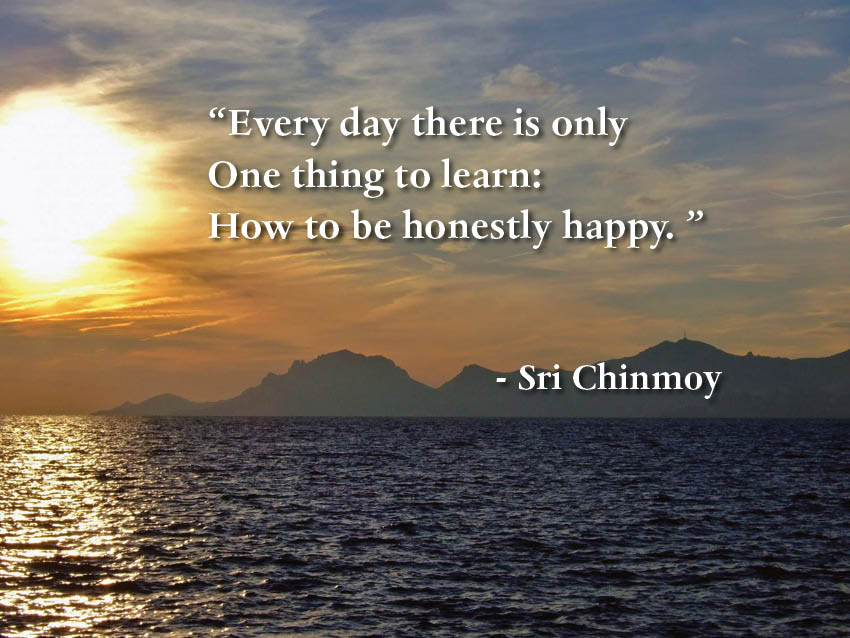Over the past decade, I’ve been competing in cycle races across the UK. In those 10 years, I’ve finished in just about every position from first to last. As an athlete there is always part of you which is striving to win; but at the same time as trying to win, I’ve tried to learn the art of being happy and cheerful whatever the outcome (harder in practise than theory.)
Sri Chinmoy offers the supreme philosophy.
He is the great winner
Who wins.
He is the greater winner
Who is the cheerful loser.
He is the greatest winner
Who gives equal value
To victory and defeat.
He alone is the real loser
Who separates
Defeat from victory.
– Sri Chinmoy (1)
This is a lofty philosophy, and I wouldn’t say I have been able to manage such a sense of oneness with the winner of races; I still prefer to win! But, it is a potent reminder that there is more to a race than winning. The hardest test for a human is to remain cheerful whatever the outer circumstances. If we can remain happy, despite outer disappointment, that is a great achievement.
Some things I have learnt from 10 years of competing

Cheerfulness helps performance. I remember once hearing Sri Chinmoy tell runners in the 3100 Self-Transcendence mile race that if they smile more, they would run faster. I took this lesson to mean that if we can be cheerful and remember to smile, it can help us to be in a better frame of mind, and when we are in a better consciousness we can do better. Cheerfulness helps many aspects of performance. When we get angry and disappointed with ourselves, the opposite happens, we can lose our determination, confidence and enthusiasm. Maintaining cheerfulness helps us to be positive and determined. More subtly, a cheerful attitude helps us to get into that elusive ‘flow’ of good energy.
Dealing with disappointment. There isn’t any athlete who hasn’t been disappointed with their performance at some time of their career, if not every year. We are striving to do better and make improvements, but the body doesn’t respond in the way that we hope and expect. From a practical point of view it is important to be realistic and remember, this is an inevitability of life and physical performance. It may be a bit of cliché, but we never make progress in a straight line, it is more like a corkscrew, sometimes we have to go down as well as up. Remembering this inevitability, helps to prevent needless introspection and loss of motivation. Another cliché, often rolled out – is the fact that defeats are just as important as the victories. It maybe clichéd, but it is also true. With disappointing results, firstly we have to keep things in perspective; this creates a sense of detachment and balance which helps us to move on.
Enjoy the experience. The joy of winning is fleeting at best. You get to lift a trophy and a moment’s fame, but this joy is transient. A much better approach to sport is to try and enjoy every aspect of training, and racing. In one sense, racing on the limit is physically painful, but it gives a sense of satisfaction that you can’t get from sitting on a comfortable sofa. If we can remember to enjoy the exhilaration of performance and competing, we will get a much more lasting sense of fulfilment, that isn’t reliant on winning. Sri Chinmoy once said something like a marathon is torture for the body, mind and vital, but joy for the heart (unofficial quote from my memory)Â I think all athletes can relate to the paradox of physical and mental pain, but at the same time getting some kind of joy from the whole experience.
Self-transcendence. Self-transcendence is simply our effort to better ourselves. This can be on any level – physical, mental and spiritual. We may not have the greatest natural talent, but we can always try to beat our previous bests or the best for our age category. Self transcendence means we are not comparing ourselves with others, but competing with ourself. From a practical point of view, it is very beneficial to only concentrate on your own performance and not think about other athletes. When you start wondering what your competitors are doing, you will lose focus. We cannot always transcend our physical capacities, but even if our time is disappointing, we can still try and transcend our approach to victory.
Detachment. Related to self-transcendence and the goal of competing with ourselves, we need to cultivate the capacity to have detachment from the result. Detachment doesn’t mean not caring. It just means we try to maintain equanimity whatever the outcome. Rather than seeing ourselves as a failure or success, we can just focus on what we achieved. As long as we have given everything, then we should seek satisfaction from that, and not the outer result.
The past is dust. Another great mantra, is ‘The Past is Dust’ Perhaps one performance or one season was disappointing. If we dwell on this, we bring a lot of negativity into our mind and this will only adversely affect our future performance. It is always better to concentrate on doing what we can at this present time, and just let go of any unfortunate experience. Just take a very practical approach, whatever position we are in, what is the best thing we can do from this situation? Continue reading “Winning, losing and happiness”








